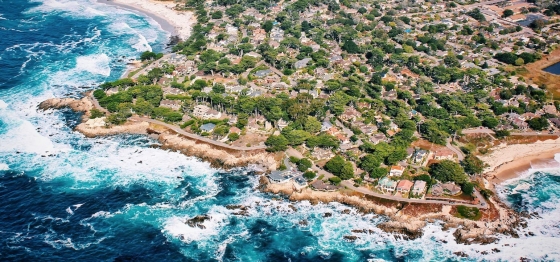Captain Cook (HI), United States of America - Weather and Climate
Captain Cook, Hawaii, United States of America has a steady warm climate throughout the year.
It also has a relatively rainy climate with high levels of precipitation.
Let's now guide you through the climate details for a complete overview.
Average maximum day and minimum night temperature
The temperature in Captain Cook remains steady throughout the year, providing a consistently comfortable climate. On average, daytime temperatures range from a comfortable 24°C in August to a pleasant 21°C in February.
Nighttime temperatures can drop, with average lows reaching 16°C in February.Check out our detailed temperature page for more information.
Temperature ranges by month
Precipitation and rainy days
Captain Cook has a relatively rainy climate with high precipitation levels, averaging 4774 mm of rainfall annually. The seasons in Captain Cook, bring significant changes in precipitation. The wettest month, July, receives heavy rainfall, with an average of 663 mm of precipitation. This rainfall is distributed across 20 rainy days.
In contrast, the driest month, January, experiences much less rainfall, totaling 169 mm over 15 rainy days. These distinct seasonal differences provide diverse experiences throughout the year. For more details, please visit our Captain Cook Precipitation page.The mean monthly precipitation over the year, including rain, hail and snow
Sunshine over the year
Captain Cook enjoys sunny spells year-round. June sees up to 9.7 hours of daily sunshine, perfect for a sunny trip. February, the least sunny month, still offers a generous 6.8 hours of sun despite this cloudier time of the year.
Visit our detailed sunshine hours page for more information.
Monthly hours of sunshine
Daily hours of sunshine
Forecast for Captain Cook (HI)



Select a Month of Interest
Check the conditions for any month of the year.
The best time of year to visit Captain Cook in the United States of America
The average rainfall figures in Captain Cook are quite high. Throughout the year, you have a chance of prolonged precipitation. So no matter what time of year you go, you will always have to deal with a high number of rainy days. This makes it more challenging to point out the best time of year to visit. If we needed to pick one month we would choose July which is the sunniest month of the year.Other facts from our historical weather data:
August has an average maximum temperature of 24°C and is the warmest month of the year.
The coldest month is February with an average maximum temperature of 21°C.
July tops the wettest month list with 663 mm of rainfall.
January is the driest month with 169 mm of precipitation.
July is the sunniest month with an average of 290 hours of sunshine.
No idea where to travel to this year? We have a tool that recommends destinations based on your ideal conditions. Find out where to go with our weather planner.



